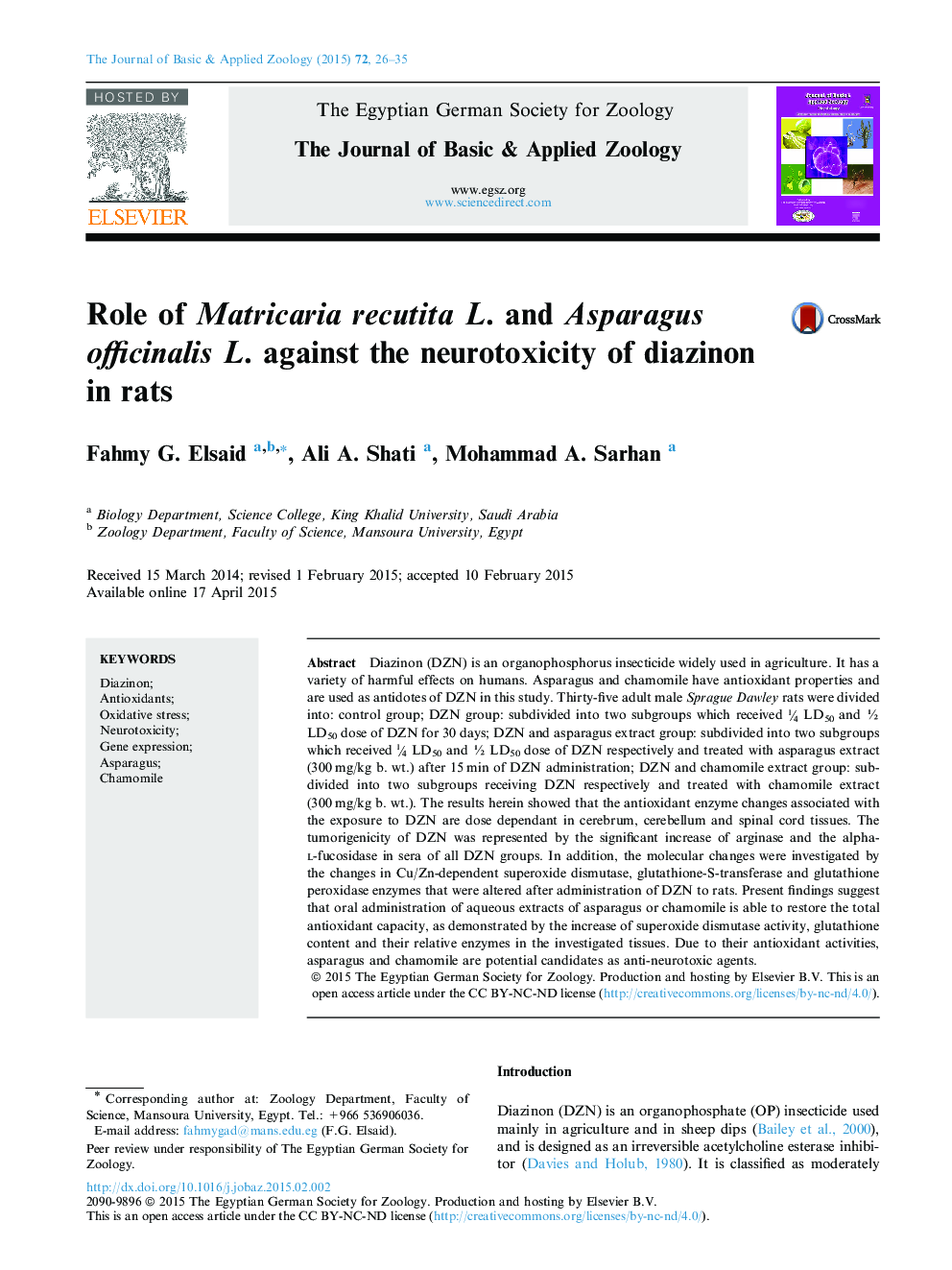| Article ID | Journal | Published Year | Pages | File Type |
|---|---|---|---|---|
| 4493392 | The Journal of Basic & Applied Zoology | 2015 | 10 Pages |
Diazinon (DZN) is an organophosphorus insecticide widely used in agriculture. It has a variety of harmful effects on humans. Asparagus and chamomile have antioxidant properties and are used as antidotes of DZN in this study. Thirty-five adult male Sprague Dawley rats were divided into: control group; DZN group: subdivided into two subgroups which received ¼ LD50 and ½ LD50 dose of DZN for 30 days; DZN and asparagus extract group: subdivided into two subgroups which received ¼ LD50 and ½ LD50 dose of DZN respectively and treated with asparagus extract (300 mg/kg b. wt.) after 15 min of DZN administration; DZN and chamomile extract group: subdivided into two subgroups receiving DZN respectively and treated with chamomile extract (300 mg/kg b. wt.). The results herein showed that the antioxidant enzyme changes associated with the exposure to DZN are dose dependant in cerebrum, cerebellum and spinal cord tissues. The tumorigenicity of DZN was represented by the significant increase of arginase and the alpha-l-fucosidase in sera of all DZN groups. In addition, the molecular changes were investigated by the changes in Cu/Zn-dependent superoxide dismutase, glutathione-S-transferase and glutathione peroxidase enzymes that were altered after administration of DZN to rats. Present findings suggest that oral administration of aqueous extracts of asparagus or chamomile is able to restore the total antioxidant capacity, as demonstrated by the increase of superoxide dismutase activity, glutathione content and their relative enzymes in the investigated tissues. Due to their antioxidant activities, asparagus and chamomile are potential candidates as anti-neurotoxic agents.
